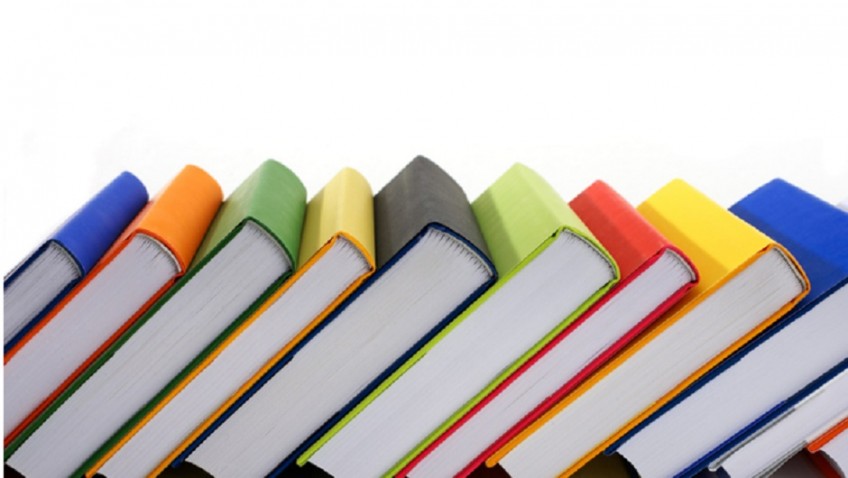Robert Tanitch reviews three books
 KANDINSKY The Elements of Art by Philippe Sers (Thames & Hudson £60). Vasily Vasilievich Kandinsky, artist and theorist, influenced by mysticism and Theosophy, is one of the most important pioneers of abstract art. He did not imitate reality. (“I knew for certain,” he said, “that subject matter was detrimental for my paintings.”) The paintings are extraordinary in their wild, intense, cosmic and apocalyptic vigour. Every colour has its special quality. The rich, exuberant vibrant, clashing and deconstructing colours have a dynamic, spiritual and symbolic impact. In the 1920s Kandinsky became more and more geometric – circles, triangles, rectangles, waving lines, fantastic shapes – joyous, witty arabesques. The paintings are amazing, a delight, and superbly reproduced. The book and its commentary are terrific.
KANDINSKY The Elements of Art by Philippe Sers (Thames & Hudson £60). Vasily Vasilievich Kandinsky, artist and theorist, influenced by mysticism and Theosophy, is one of the most important pioneers of abstract art. He did not imitate reality. (“I knew for certain,” he said, “that subject matter was detrimental for my paintings.”) The paintings are extraordinary in their wild, intense, cosmic and apocalyptic vigour. Every colour has its special quality. The rich, exuberant vibrant, clashing and deconstructing colours have a dynamic, spiritual and symbolic impact. In the 1920s Kandinsky became more and more geometric – circles, triangles, rectangles, waving lines, fantastic shapes – joyous, witty arabesques. The paintings are amazing, a delight, and superbly reproduced. The book and its commentary are terrific.
 IN THE GARDENS OF IMPRESSIONISM by Clare A P Willdson (Thames & Hudson £19.95). Nobody laughs anymore. Everybody loves the Impressionists. The favourites are all here: Manet’s Music in the Tuilleries, Renoir’s The Ball at the Moulin de la Galette, Pissarro’s The Cote des Boeufs, Monet’s Women in the Garden, Caillebotte’s The Orange Trees, etc, etc. The volume is an academic study of the Impressionists’ love for family gardens and public parks. Painting and horticulture were intimately linked more than in any other period. Gardens played a central role and were a potent source for inspiration. Monet famously said Givrney was his most beautiful work of art. Garden lovers will be in heaven. The paintings are lovely.
IN THE GARDENS OF IMPRESSIONISM by Clare A P Willdson (Thames & Hudson £19.95). Nobody laughs anymore. Everybody loves the Impressionists. The favourites are all here: Manet’s Music in the Tuilleries, Renoir’s The Ball at the Moulin de la Galette, Pissarro’s The Cote des Boeufs, Monet’s Women in the Garden, Caillebotte’s The Orange Trees, etc, etc. The volume is an academic study of the Impressionists’ love for family gardens and public parks. Painting and horticulture were intimately linked more than in any other period. Gardens played a central role and were a potent source for inspiration. Monet famously said Givrney was his most beautiful work of art. Garden lovers will be in heaven. The paintings are lovely.
 GAY LIFE STORIES by Robert Aldrich (Thames & Hudson £12.99). Sex is never entirely a private matter. Here are some well known names and some not-so-well-known names and none of them is still living. Aldrich has chosen some 80 lives from a variety of continents (not just Europe) and professions: Socrates, Hadrian, Michelangelo, Frederick the Great, Walt Whitman, E M Forster, Federico Garcia Lorca, T E Lawrence and many more, and perhaps leaving you still wanting many more. The essays are brief and though they have an agenda they are not prurient.
GAY LIFE STORIES by Robert Aldrich (Thames & Hudson £12.99). Sex is never entirely a private matter. Here are some well known names and some not-so-well-known names and none of them is still living. Aldrich has chosen some 80 lives from a variety of continents (not just Europe) and professions: Socrates, Hadrian, Michelangelo, Frederick the Great, Walt Whitman, E M Forster, Federico Garcia Lorca, T E Lawrence and many more, and perhaps leaving you still wanting many more. The essays are brief and though they have an agenda they are not prurient.
To learn more about Robert Tanitch and his reviews, click here to go to his website






